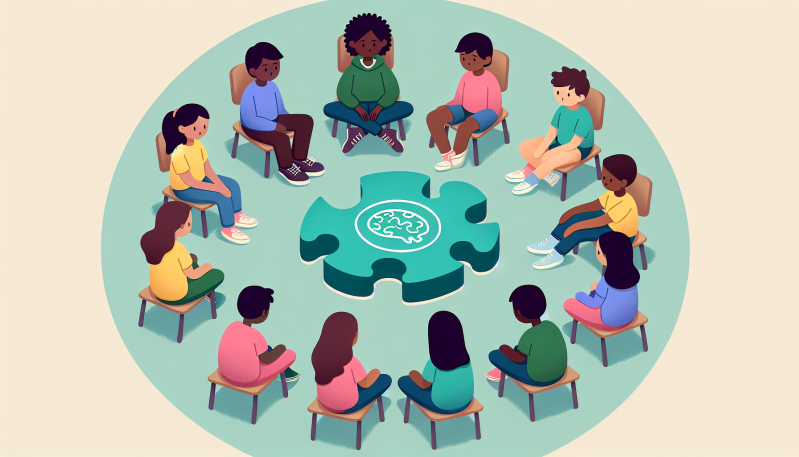As students traverse the dynamic landscape of their educational journey, anxiety often emerges as a formidable tide, influencing their academic performance, social life, and personal well-being. The prevalence of mental health issues among young people has heightened the need for effective coping strategies that can be embraced and implemented throughout various stages of their growth. It’s crucial to create a nurturing ecosystem where students can flourish mentally, emotionally, and academically. Friendship Week is committed to guiding students, educators, and parents through these often turbulent waters.
For our youngest learners in elementary school, establishing a foundation of emotional intelligence and resilience is key. These early years are formative in shaping a child’s perception of their environment and their ability to handle stress. Introducing simple, age-appropriate activities such as ‘feelings check-ins’, story time discussions about emotions, and calming breathing exercises can be powerful tools. Encouraging open conversation about feelings and normalizing the experience of anxiety helps children understand that they’re not alone and equips them with language to express their inner world. Educators and parents can collaborate in creating a consistent, safe space for children to share and learn coping mechanisms.
Middle schoolers encounter a new wave of complexities as they navigate the social labyrinth of adolescence while balancing an increased academic workload. Peer relationships and a burgeoning sense of identity often take center stage, making it an opportune time to introduce structured support systems. Skills like conflict resolution, effective communication, and empathy building are vital. Introducing structured peer support groups and providing resources such as time management workshops can empower students with the agency to manage their stress levels. Educators can integrate social-emotional learning (SEL) into the curriculum to foster a more understanding peer culture.
High school students are on the cusp of adulthood and face an array of pressures that include academic achievements, extracurricular commitments, college applications, and a quest for personal identity. Here, the adoption of advanced coping strategies becomes essential. Techniques such as mindfulness practice, journaling, and cognitive-behavioral approaches can serve as anchors in the tumultuous sea of high school expectations. Time management becomes a crucial skill, as does the ability to prioritize and set realistic goals. Furthermore, destigmatizing the pursuit of professional mental health support can pave the way for students to seek help without fear of judgment.
At Friendship Week, we believe in a community approach to addressing student anxiety. By providing resources and training for teachers, creating engaging classroom materials for students, and supporting parents with informative workshops, we aim to cultivate an atmosphere of kindness, understanding, and support. A united front can significantly impact the mental health landscape of schools, ensuring every student has the opportunity to reach their potential, free from the crippling effects of anxiety. Let us equip our young minds with the skills to navigate the waves of anxiety, transforming them into adept sailors on the vast ocean of life.



